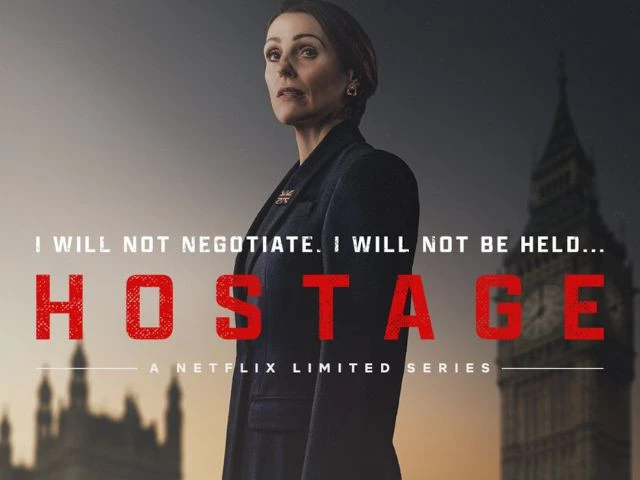Is 'Hostage' Netflix’s boldest political thriller yet?
Netflix’s 'Hostage' stars Suranne Jones as a prime minister caught in a deadly web of kidnappings and betrayal.

Netflix’s new political thriller Hostage has arrived with gripping intensity, putting Suranne Jones in the spotlight as newly elected prime minister Abigail Dalton. The series wastes no time in throwing her into chaos, mixing political intrigue, family turmoil and international terrorism into a story that unfolds at breakneck speed.
Dalton’s rise to power is quickly overshadowed by personal tragedy. Her husband, a doctor working with humanitarian teams, is kidnapped along with his colleagues while on assignment in French Guiana. At the same time, Dalton faces a national crisis over access to vital cancer drugs, forcing her into tense negotiations with the French president, played with icy precision by Julie Delpy. The stakes rise when terrorists demand Dalton’s resignation, leaving her to weigh the safety of her family against her responsibility as leader.
The show refuses to linger, delivering five tightly woven hours that avoid the usual streaming bloat. Instead, it’s packed with twists, betrayals and moral dilemmas. Dalton’s daughter urges her to step down, her dying father pushes for family above politics, and her aides question her ability to lead. The pressure intensifies as public opinion shifts, with sympathy for Dalton’s plight quickly giving way to criticism over government failings.
Shot across international locations, Hostage feels expansive yet personal, grounding the spectacle in Dalton’s emotional battle. What makes it refreshing is the way it presents two women in positions of extraordinary power without turning them into clichés. Both Jones and Delpy are given space to play layered, flawed leaders whose decisions carry devastating consequences.
Fast, furious and deeply entertaining, Hostage balances political thrills with human drama. It asks hard questions about leadership, sacrifice and the price of power, all while keeping audiences hooked until the final moment. For Netflix, it’s a gamble that pays off in full.



















COMMENTS
Comments are moderated and generally will be posted if they are on-topic and not abusive.
For more information, please see our Comments FAQ